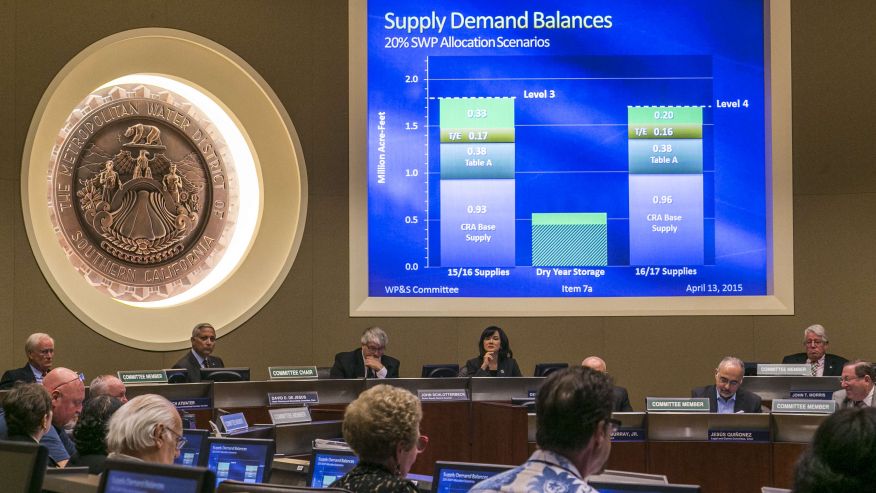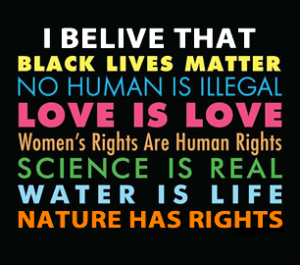The California dilemma
For anyone who hasn’t been paying attention, the drought situation in California continues to worsen, and the state is beginning to step in with more drastic measures to address the crisis. The latest step in this direction occurred this week, when the WMA approved a 15% across the board cut in water supplies. Here’s a snippet of the coverage on that vote and its implications for California this year.
“Cities and water districts serving 19 million people in Southern California face smaller water deliveries this summer under a plan approved by the region’s water wholesaler in response to ongoing dry conditions.
The Metropolitan Water District, which sells imported water to more than two dozen local agencies, voted Tuesday to slash regional deliveries by 15 percent as California grapples with a fourth year of drought.
The cutbacks, which take effect in July, were expected to spur communities to step up their conservation efforts to avoid paying for high-priced water beyond the allotted amount.
The effect of the cuts would vary between local water districts depending on their supplies and how much water they have saved so far.
Metropolitan officials have said limiting water deliveries was necessary to stretch dwindling storage supplies as summer approaches and could help cities meet Gov. Jerry Brown’s order to reduce urban water use by 25 percent compared with 2013 levels — a first in state history.”

April 13, 2015: Members of the board committee of the Metropolitan Water District, MDW, check two different proposals: Supply Demand Balances, before moving forward on the Level 3 proposal that would cut regional water deliveries by 15 percent beginning this summer. (AP)
Read more on the California water story here.
But this is just the tip of the iceberg, according to some NASA scientists, who have warned of a coming “mega drought” that will make what is happening in California seem like a dream. For more details, check out this short video below, and this story over at The Daily Kos.
But at the same time, it is useful to put this issue in the wider perspective of what we have, versus what we want, since much of the drought discourse is premised on what we want for a rapidly expanding industrial economy, rather than what we actually need to survive as a species. This piece on the economics of the water crisis helps give some important context to the issue.
Whatever the case, it is clear that this is an issue that is not going away, and will only continue to grow worse in the coming years. I guess the upside to all of this is that the ground for the climate denial community to stand on is rapidly drying up and melting away, which is an ironic plus.


